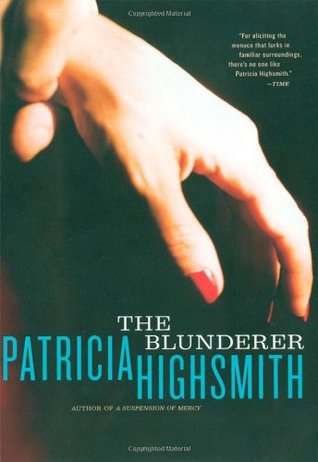Hello all! So, I’ve been trying to work through my giant back-catalogue of books, some of which are still left over from last year, and, to be frank, there are a couple that I don’t really have that much to say about. So, in the interests of paring down the ever-growing list and not trying to wrack my brain for more commentary than I have, I’m just going to write up three quick reviews to fill out the post. These are in order of least-liked to best-liked, but I do have to say that none of these were particularly terrible. Which, come to think of it, is probably part of the reason I don’t have much to say about any of them.
#1—No Passengers Beyond This Point by Gennifer Choldenko

Standalone, Dial Books, 2011, 244 pgs.
Life is falling apart for Finn Tompkins and his siblings: his family is losing their house, meaning he and his sisters are being forced to move away from everything they’ve ever known. Worse yet, their mother can’t come with them on the flight to their crazy Uncle Red’s place, leaving them to deal with the change on their own. So when they land in Falling Bird, a town that appears to give them everything they’ve ever wanted, instead of at Uncle Red’s, it seems like a dream come true. Can they trust this new place, though?
This is by far my least favorite of the three, as well as the hardest for me to talk about. That’s probably because there was nothing actually wrong here, so I’m not sure what turned me so strongly against it. Most of what I remember as my problem was that everything just seemed far too generic. The characters are archetypes that develop a little, but not enough, the plot goes about where you expect it to at the beginning, and even the prose feels like the author just pulled the stereotypical voice for a teenager, tween, and young child. Even the world it creates, while interesting, feels like it needed another draft to add some depth and meaning to it. And while it has its moments of honest emotion and has its ambitions with regards to commenting on family and poverty and the effects of the housing crisis, all those little elements that never move beyond the easy and generic really do get in the way of anything it was trying to do. Like the last on this list, it’s a book meant for pre-teen children, so I doubt most of the intended audience is going to notice, but this just failed at what it was going for, for me.
#2—One Night That Changes Everything by Lauren Barnholdt

Standalone, Simon Pulse, 2010, 242 pgs.
Ever since she was little, Eliza has kept a notebook listing all the things she’s scared to do: all the things she’d wear, all the places she’d go, all the boys she’d talk to if she were a braver person than she is. And now that notebook’s disappeared, from out of her locker and into the hands of her lying ex and his ratfink cronies. To get it back, without it being posted for the whole school to see, she’ll have to do everything she wrote down, everything she’s ever been terrified to do. She’ll absolutely have to find the strength, too, because her own secrets aren’t the only ones in that book.
If I had to choose one word to describe this novel, it would be capslocky, both literally and figuratively. This book is set almost entirely in a state of panic, and that colors everything about it, from the stupid decisions the characters make to the almost spastic thought process our lead and narrator has. Even when the text is perfectly normal, you can just see the capslock lurking under it, waiting to be brought out again. I don’t normally want a character that manages to handle all her emotions gracefully, but even I thought Eliza here needed to stop, chill, and think things through. I get why the book does this: it is, in part, supposed to be an over-the-top high school comedy where people act crazy because it’s funny, but that aspect of it is also the book’s main problem. If you, like me, have fond nostalgia over She’s All That and movies like it, you probably won’t hate this, but the execution definitely could have been better. This plot felt like it should have been over before it began because, by the time it had started, I’d already thought of three ways out of the major problem, the characters’ antics were often more annoying than funny, and my main reaction to the lead was wanting to hand her a Xanax, because most of the secrets she was freaking out about were nothing that anyone would bat an eye at. A teenager, nervous about asking a boy out or wearing revealing clothes? No one can ever know! That said, nothing happens here that I wouldn’t have easily accepted in some silly teen movie. If physical comedy and facial expressions had been available to back some of this stuff up, it could have been very funny. Basically, this probably should have been a script instead of a novel. Make of that what you will.
#3—The Disappeared by Gloria Whelan

Standalone, Dial Books, 2008, 136 pgs.
The place is Buenos Aires, and the date is 1977, a time of political upheaval and widespread government oppression. The military junta currently in power tolerates no dissent, leading to Argentine citizens vanishing in the middle of the night, whisked away by the police for their beliefs. These people are known as The Disappeared, most of whom will never be seen again, and Silvia’s brother, Eduardo, has just become one of them.
I was, actually, very impressed with this one, especially because I picked it up for the topic, in spite of knowing that it was geared at a far younger audience. It’s a children’s book, no doubt, but for all the simplifying of complex concepts that entails, it does perfectly right by its heavy subject matter. If it weren’t so simple, plot and character-wise, or so short, in fact, this would probably be getting a proper review. In some ways, that simplicity actually helps the novel, too; the prose, for example, consists of short, plain-spoken sentences and easily understood imagery, but instead of detracting from the emotional appeal of the book, it gives the whole thing a feeling of understated tragedy and despair hidden by a brave face. This also never, surprisingly, pulls its punches on anything it’s talking about. As a children’s novel it never gets graphic, but it doesn’t sugarcoat the reality of a government imprisoning its political dissidents. There are torture scenes, and people being killed secretly by the police, and people’s families being threatened because they were protesting. A lot of the topics Whelan covers, and a lot of the emotional responses the characters have seem almost like they were pulled directly from some of the nonfiction books I’ve read on Argentina’s Disappeared; it’s obvious the author did her research here. It’s not perfect, by any means. The characters don’t really develop over the course of the book, and the prose seems more like it fell out of 1940-something than the late seventies. But in spite of those things, I was pleasantly surprised with this.
Advertisements Share this:




